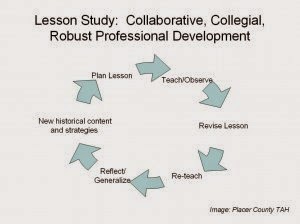Sunday morning. Our second oldest is headed back to the airport after having spent the last four days with us. I dive under my headphones to get something written, knowing that I will have limited time. The little kids are all jammed in front of Alvin and the Chipmunks and the baby is asleep. I am through with feeling guilty about putting the kids in front of the tube to get a little time to myself. Selfish, one might think, and I used to agree, but I no longer care. Not with 4 foster children all under the age of six, 4 biological children ages 14-28, three dogs - one of which is the size of a small horse - a very demanding career, and a loving marriage of almost 23 years that, regardless of what people might think after 23 years, does not run itself. These things require time and care and energy and, most of all, love.
And in order to have all that, you have to be willing to commit. And make sacrifices.
What I know at this age (44), and after this much time in public education - 19 years - is that sacrifice is a human endeavor that appears at first as loss. In order to sacrifice something, really make a sacrifice, you must feel the loss; you must acknowledge that there is something missing from your daily routine. For example, if you really care about being the best baseball player on the planet, you have to be willing to sacrifice certain things like Twinkies and double chocolate Oreo shakes. You also have to be willing to add things into your daily routine, like cardio workouts and batting practice and taking 200 ground balls three times a day. In order to make room for these things, to which you have committed in order to be the best on the planet, other things have to go.
For me, the things that have had to go are plentiful. I am not trying to be the best baseball player on the planet (although that would have been cool), but I am trying to be the best father, the best husband, the best foster daddy, the best middle school principal and role model for my school kiddos, the best leader for my teachers, and the best doctoral candidate on the planet. These endeavors, I am convinced, are more difficult than trying to be the best baseball player on the planet. The sacrifices made have come in the form of dancing in the kitchen when I know I should be working at my computer, being the consistent disciplinarian when I would much rather be having fun and laughing mistakes away, and letting go of the people in my life who can't - or won't - contribute goodness and usually only add problems and grief to my already overflowing plate.
This is how I strive to become the best. These are the sacrifices that, at one point in my life, would have caused me to say yes when I knew I should be saying no. These are the things I have been wiling to give up - and some I've added - in order to be the best. I don't have time for anything else in my quest. Neither do you. It starts with taking stock of everything going on in your life - all of the things and people to whom you are responsible - and asking yourself what the vision is. Once the vision is established, it is time to make some commitments. You will soon see what needs to be cut from, and added to, your daily routine. Make the sacrifice to become the best whatever-it-is-you-want-to-be.




